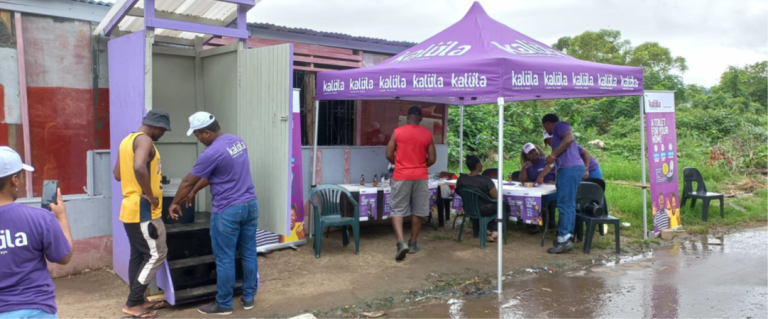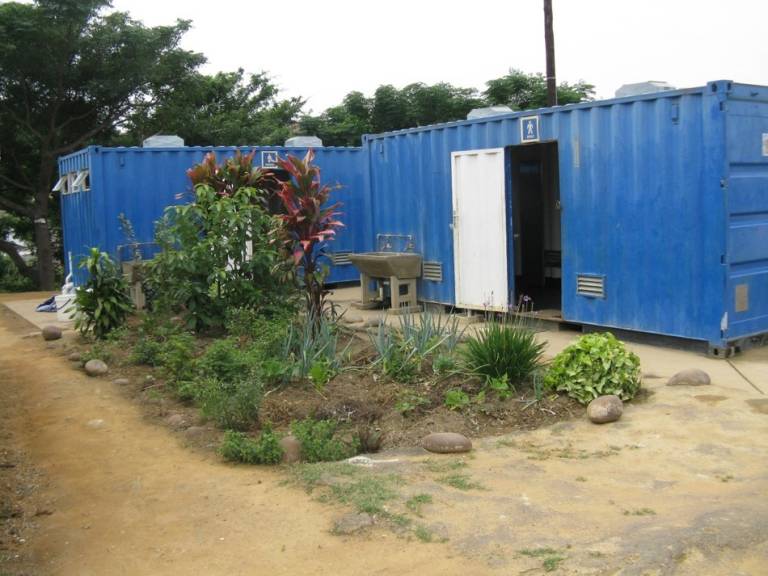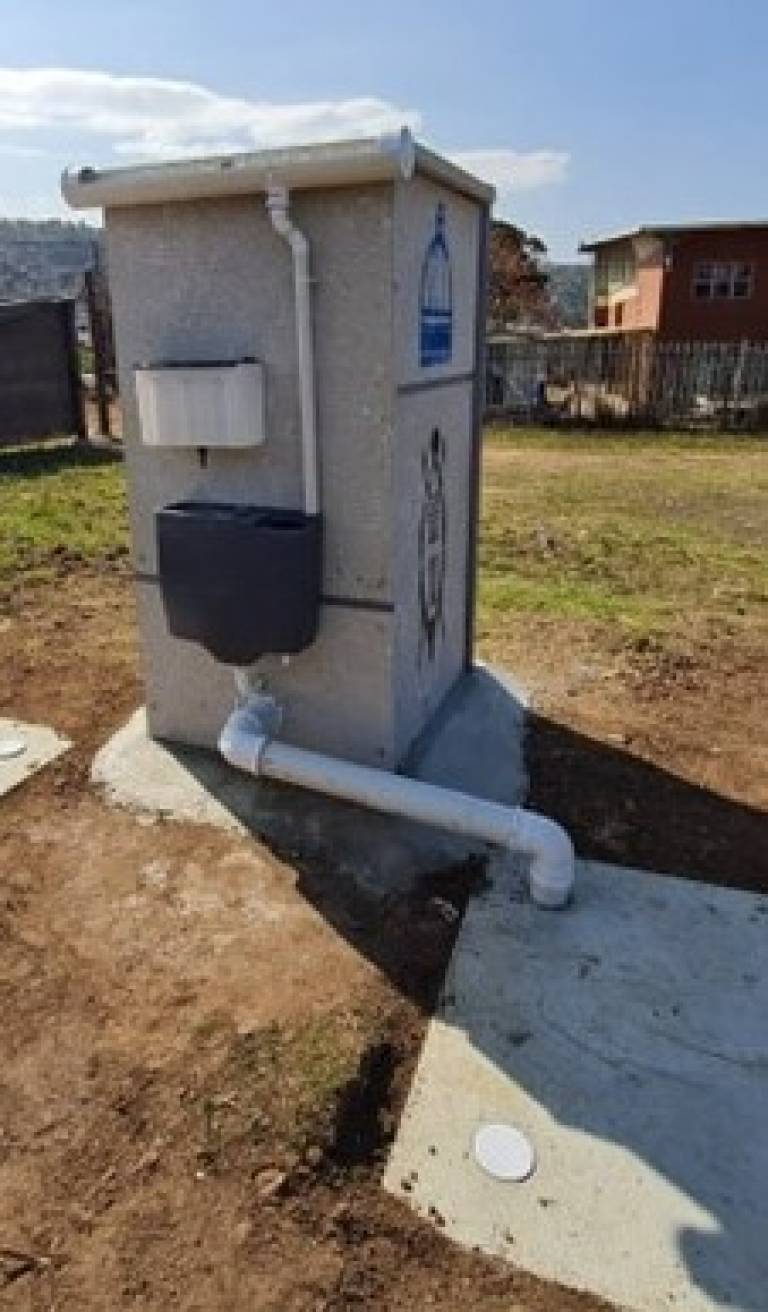A joint project between UCL and eThekwini Municipality. ToolSan Durban Phase 2 leverages the multisectoral benefits of SDG 6 and aims to equip cities with a decision-making toolkit.

A joint project between UCL and eThekwini Municipality, The Policy Toolkit for selecting Sanitation Technologies with High Impact on the SDGs (ToolSan Durban: Phase 2) builds on the successes of a previous collaboration between the two partners. We look at selected sanitation technologies across the entire sanitation service chain in Durban, South Africa, including sewered, non-sewered, dry and container based solutions. The transdisciplinary toolkit will pay attention to the potential for reusing waste and evaluate the appropriateness of technologies for different contexts. Accordingly, the assessment will consider variations in density, land tenure, and community perceptions of technical choices when analysing suitability of sanitation technologies.
 | Communal ablution block with flush toilets and showers (CAB) in Thandanani informal settlement Durban. There are about 1400 CABs which service over 100,000 households in eThekwini Municipality. (Photo credit: Odili, 2017) |
 | Pour flush toilet with rainwater harvesting design (Photo credit: PID, 2022) |
ToolSan Durban Phase 2 leverages the multisectoral benefits of SDG 6 and aims to equip cities with a decision-making toolkit that can help identify appropriate sanitation solutions with the greatest overall impact for its people, the society, and the environment. This project will provide policy makers with evidence to consider trade-offs and benefits for scaling up of new technologies especially those which are sustainable to operate and maintain, environmentally friendly, affordable, and accepted in Durban. The approach developed by the team could also be used as a toolkit for other cities in South Africa and beyond.
The project involves conducting a series of virtual workshops with stakeholders, especially eThekwini Municipality, to co-develop a toolkit that considers local priority SDG targets. These priority targets will be used to analyse the selected sanitation technologies through initial scoping of academic and grey literature, and through first-hand account of current practices in the management of sanitation systems and services in eThekwini Municipality.
Funder details
This project is funded by Vitol Foundation.
Project Members
UCL Team Members
- Professor Priti Parikh
Professor of Infrastructure Engineering and International Development - Dr. Pascale Hofmann
Associate Professor in Environmental and Sustainable Development - Professor Monica Lakhanpaul
Professor of Integrated Community Child Health - Professor Luiza Campos
Professor of Environmental Engineering - Dr Ine Steenmans
Associate Professor in Futures, Analysis and Policy - Mr Anthony Odili
Research Fellow in Sustainability and Sanitation
Durban Team Members
- Dr. Sandile Mbatha is Senior Manager Research and Policy Advocacy, Office of Strategic Management Department at eThekwini Municipality, Durban, South Africa.
- Ms. Nevana Srikissoon works within the Human Settlements, Engineering and Transport Cluster, and works on SDG related projects, indicators, implementation and monitoring.
- Mr. Vishnu Mabeer works with the eThekwini Water and Sanitation Unit on data and statistics.
- Ms. Sarika Devraj works with the eThekwini Water and Sanitation Unit on data and statistics.
 Close
Close

